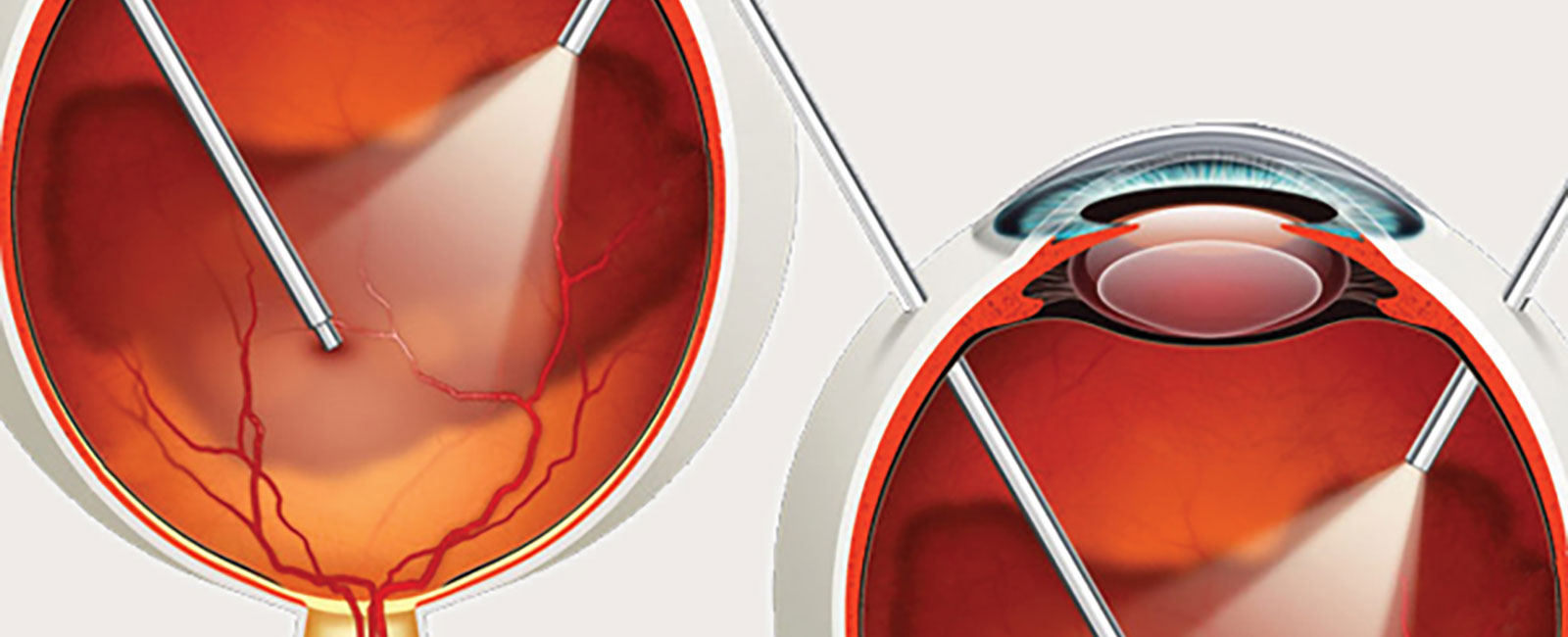
What is a vitrectomy surgery?
Vitrectomy is a procedure for a complex case of retinal detachment. It involves the removal of the vitreous gel (jelly-like substance in the eye cavity) and filling it with gas or oil by an ophthalmologist (eye specialist).
What is Retinal Detachment?
Retinal detachment occurs when the retina is separated from the outer layers of the eye. If not treated early, retinal detachment may lead to partial or complete loss of vision.
Some symptoms of retina detachment include:
- Flashes of light in the eye.
- Increase in the number of floaters.
- Worsening of the outer part of the visual field, where you experience curtain-like shadows over your field of vision.
How do I know if I have retinal detachment?
Middle-aged and older persons may see floaters and flashes in the eye. Some retinal detachments can go unnoticed until a large section of the retina is detached. In these instances, patients may notice the appearance of a dark shadow in some parts of their vision. Further retinal detachment will blur central vision and create significant loss of sight in the affected eye.
Retina detachments may also occur suddenly and the patient may experience total vision loss in the affected eye.
How long do I have to stay in the hospital after surgery?
You will be required to stay in the hospital for 2 to 3 hours after the surgery, depending on the mode of anaesthesia given. Light refreshments will be provided. You are also advised to arrange for someone to accompany you home after the surgery. Please do not drive as you will experience some side effects of anaesthesia and blurring of vision after the surgery.
What are the common types of anesthesia for vitrectomy surgery?
Your doctor will advise and recommend the most suitable type of anesthesia to be administered based on your condition. They include:
- Moderate sedation
- General anesthesia
What will I expect after the surgery?
- An eye pad with a plastic eye shield will be placed over the operated eye
- Eye drops will be prescribed to reduce the risk of inflammation and infection
- Painkillers may be prescribed by your doctor for pain relief
- Some minor discomfort and irritation may be expected after the surgery
- The eye pad and eye shield will be secured with 3 strips of micropore tape or as advised by your doctor/nurs
- You may need to lie face down after the surgery as directed by your doctor/nurse
Dos and Don’ts after Surgery
- Avoid crowded and dusty places
- Avoid getting water into the operated eye for the next 2 weeks
- Bring along all your eye drops with you on your post-operative visits
- Clean your hands before instilling eye drops on the operated eye
- DO NOT miss your scheduled appointments with your doctor
- DO NOT rub the operated eye for at least 1 month after the surgery
- Flex your head backwards when you wash your hair to prevent water from getting into your eyes (similar to how your hair is washed in a hair salon)
- Refrain from swimming, bathing in bathtubs, strenuous activities, driving or motorcycle riding until your vision is clear or as advised by the doctor
- Wear sunglasses when you are outdoors to keep your eyes comfortable and less sensitive to light
- Wear the eye shield for 2 weeks after the surgery when you sleep to avoid pressure on the operated eye
When do I need to contact my doctor?
You are advised to contact your doctor if you experience one or more of the following “RSVP” symptoms:
- Redness
- Swelling and excessive discharge
- Vision decrease
- Pain not relieved by painkillers
More Support Links:
